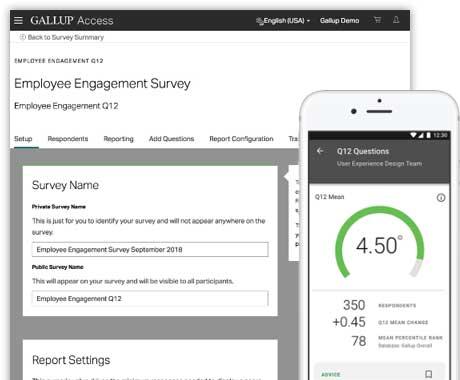Story Highlights
- Employees are your first line of defense in a culture of compliance
- Build a strong ethics and compliance culture to improve reporting ratio
Employees are your first line of defense against ethics or compliance problems. Organizational culture norms set expectations, and then it's up to employees to hold themselves and their peers accountable in real time.
But the factors that drive employees' ethical behavior -- to comply or not, to report or not -- may be practically invisible to leaders. Until there's a serious problem, that is.
That's when it's too late, because the choice to behave lawfully or ethically is made in the moment, far from leaders' sight or ability to intervene. Compounding that problem, most employees won't speak up. In a recent Gallup Panel study of the U.S. working population, 24% of respondents reported seeing or being aware of unethical behavior in their workplace in the past 12 months -- and less than half of them, 47%, chose to report the issue. In a big company, that could mean hundreds or even thousands of potentially serious problems that leaders don't see.
That begs the question: Why do most employees keep silent about breaches of law or ethics? Most respondents told Gallup that they didn't think speaking up would do any good (that "no action would be taken"), followed by fear of retaliation and prior negative experiences in reporting. Nine percent weren't even sure if what they saw was a real violation.
| U.S. employees | |||||||||||||||||||||||||||||||||||||||||||||||||||||||||||||||||||||||||||||||||||||||||||||||||||
|---|---|---|---|---|---|---|---|---|---|---|---|---|---|---|---|---|---|---|---|---|---|---|---|---|---|---|---|---|---|---|---|---|---|---|---|---|---|---|---|---|---|---|---|---|---|---|---|---|---|---|---|---|---|---|---|---|---|---|---|---|---|---|---|---|---|---|---|---|---|---|---|---|---|---|---|---|---|---|---|---|---|---|---|---|---|---|---|---|---|---|---|---|---|---|---|---|---|---|---|
| % | |||||||||||||||||||||||||||||||||||||||||||||||||||||||||||||||||||||||||||||||||||||||||||||||||||
| I thought no action would be taken. | 26 | ||||||||||||||||||||||||||||||||||||||||||||||||||||||||||||||||||||||||||||||||||||||||||||||||||
| I was afraid of retaliation. | 21 | ||||||||||||||||||||||||||||||||||||||||||||||||||||||||||||||||||||||||||||||||||||||||||||||||||
| I previously reported a compliance or ethics issue, and it was not a good experience. | 10 | ||||||||||||||||||||||||||||||||||||||||||||||||||||||||||||||||||||||||||||||||||||||||||||||||||
| I was not sure it was a violation. | 9 | ||||||||||||||||||||||||||||||||||||||||||||||||||||||||||||||||||||||||||||||||||||||||||||||||||
| I addressed the offender directly and tried to resolve it. | 8 | ||||||||||||||||||||||||||||||||||||||||||||||||||||||||||||||||||||||||||||||||||||||||||||||||||
| I didn't want to get anyone in trouble. | 4 | ||||||||||||||||||||||||||||||||||||||||||||||||||||||||||||||||||||||||||||||||||||||||||||||||||
| I did not know how to report the issue. | 3 | ||||||||||||||||||||||||||||||||||||||||||||||||||||||||||||||||||||||||||||||||||||||||||||||||||
| I thought someone else would report it. | 3 | ||||||||||||||||||||||||||||||||||||||||||||||||||||||||||||||||||||||||||||||||||||||||||||||||||
| It was too much of a hassle. | 3 | ||||||||||||||||||||||||||||||||||||||||||||||||||||||||||||||||||||||||||||||||||||||||||||||||||
| Among those who say they have personally seen or have firsthand knowledge of employees or managers demonstrating unethical behavior | |||||||||||||||||||||||||||||||||||||||||||||||||||||||||||||||||||||||||||||||||||||||||||||||||||
| Gallup Panel, March 2020 | |||||||||||||||||||||||||||||||||||||||||||||||||||||||||||||||||||||||||||||||||||||||||||||||||||
Two-thirds of all issues that were not reported can be attributed to the first four reasons. And as said, these kinds of responses are the result of decisions that leaders can't see -- until they have to deal with the repercussions.
That means you have to fortify your first line of defense -- the employees themselves -- by building a strong ethics and compliance work culture.
Collect, Analyze, Improve
As the data make clear, a variety of reasons dictate employees' decisions to speak up about violations of law or ethics. Leaders need to know the percentage of will versus won't -- Gallup calls it the reporting ratio. That number indicates the strength of a corporate culture and helps you make decisions about effectively changing compliance programs, systems and communications.
Keep in mind that every organization is a collection of local work cultures. To understand what drives behavior on the ground, you need to survey employees or have in-depth conversations with them. A neutral third party is likely to get more honest answers, though. If workers have had bad experiences before or fear reprisal, they're unlikely to be forthcoming with their leaders.
Then, working closely with reporting and investigations teams, leaders need to analyze the data and use those insights to sculpt a corporate culture that supports upstanding behavior.
For instance, if employees' behavior is driven by their fear of retaliation or the assumption that speaking up won't help, the reporting process is unclear. Leaders need to re-engineer it so all employees know how and where to report issues, taking into consideration the unique demands of each role, location, etc.
You have to fortify your first line of defense -- the employees themselves -- by building a strong ethics and compliance work culture.
After that, leaders need to track the impact of changes on their work culture and reporting ratio by monitoring employee feedback. Pulse surveys or other feedback mechanisms allow leaders to evaluate changes in the short term, but YOY analysis indicates an organization's trajectory and the real influence of new organizational cultural expectations.
Identify Areas of Risk Proactively
Those changes are important because they precede employees' decisions. Their day-to-day choices keep your company safe -- or expose it to serious risk. And you'll almost never know what those decisions are. You'll only see the results.
Don't wait that long. It's dangerous. Especially because you can discover whether your employees are a strong, enthusiastic first line of defense. If so, they're your proxy. If not, there are serious holes in your organization's security. And if that's the case, find out where the holes in your compliance work culture are -- and fix them.
Improve your corporate culture's reporting ratio:
- Let Gallup assess where you are and create a strategy to reach your ideal state.
- Use Gallup's scientifically validated employee surveys on company culture to back your strategy with proven surveys and insights.
- Read about Gallup's organizational culture approach in our perspective paper Building a Culture That Drives Performance.





